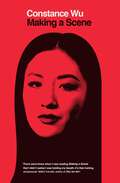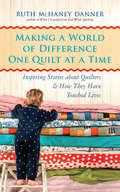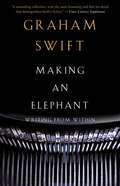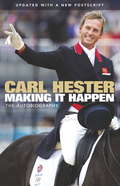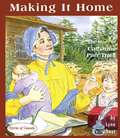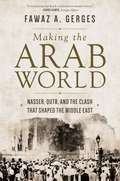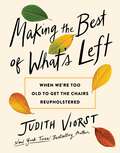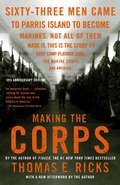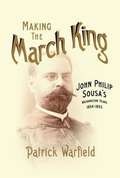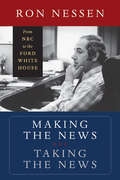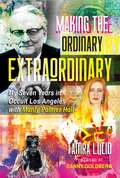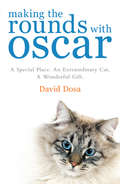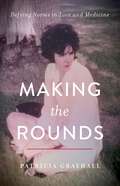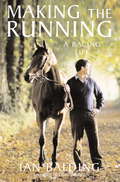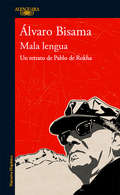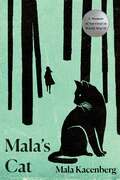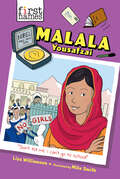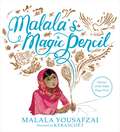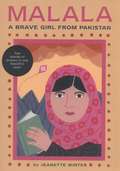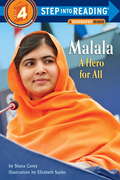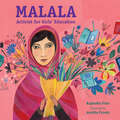- Table View
- List View
Making a Scene
by Constance WuFrom influential and iconic star Constance Wu, a powerful and poignant memoir-in-essays full of funny and intimate observations that will resonate with readers everywhere.Growing up in the friendly suburbs of Richmond, Virginia, Constance Wu thought that girls were supposed to be reserved, graceful, and polite. Everyone around her praised ladylike behaviour while seeming to disapprove of the louder, rougher girls – the kind of girls who made scenes. And while she spent most of her childhood suppressing her bold, emotional nature, Constance found an early outlet in local community theatre. The stage was the one place where big feelings were okay – were good, even. As she continued to reconcile her personality with the expectations of daily life, acting became more than a hobby. It was her refuge, her touchstone, and eventually her vocation. She went to New York to study classical theatre and pursue an acting career while waiting tables, dating, despairing, and embracing city life. In 2015, she was cast in the ground-breaking TV sitcom Fresh Off the Boat, a touching, funny story about an Asian American family in the &’90s. Another historic role followed when she starred in the smash hit film Crazy Rich Asians, which featured an entirely Asian cast. These two pivotal moments in Hollywood history opened up a new chapter for Constance, who continues to explore the complexities of Asian American representation.Through raw, hilarious, and relatable stories, Constance fearlessly shares her experiences of growing up in suburban Virginia, scraping by as a struggling actress, falling in love again and again, confronting her identity and influence, and navigating the pressures and pleasures of existing in today&’s world.
Making a World of Difference One Quilt at a Time
by Ruth Mchaney DannerQuilts exemplify precious things: comfort through the warmth they provide; community, since they are often created by groups; and love, given the time and effort they require. With this in mind, legions of kindhearted quilters all over the world choose to donate their labors of love to people in need. Ruth McHaney Danner has gathered fifty-four heartwarming stories of quilters who make their compassion tangible one stitch, square, and quilt at a time. Each story introduces a quilter or group of quilters, ranging from a blind woman in Texas to preschoolers in Australia. Their gifts have the power to make recipients feel cherished and supported, even though they may never meet face-to-face. These wonderfully inspiring stories show that every quilter who has ever wondered, "But what can I do?" can do something to reach out and help others.
Making an Elephant: Writing from Within
by Graham Swift‘An immensely readable volume. On every page, Swift emerges as a considerable essayist, who upholds the sterling virtue of good writing combined with emotional and intellectual engagement’Evening StandardAs a novelist, Graham Swift delights in the possibilities of the human voice, imagining his way into the minds and hearts of an extraordinary range of characters. In Making an Elephant, his first ever work of non-fiction, the voice is his own. Swift brings together a richly varied selection of essays, portraits, poetry, and reflections on his life in writing, full of insights into his passions and motivations, and wise about the friends, family, and other writers who have mattered to him over the years. Kazuo Ishiguro advises on how to choose a guitar, Salman Rushdie arrives for Christmas under guard, and Ted Hughes shares the secrets of a Devon river. There are private moments, too, with long-dead writers, as well as musings on history and memory that readers of Swift’s novels will recognize and love. ‘A rewarding collection, with the same humanity and flair for detail that distinguishes Swift’s fiction’TLS‘Revealing, self-deprecating, full of fascinating details. ’Edward Marriott, Observer‘Swift’s essays display the same quiet intensity as his fiction, a capacity for subtle storytelling with dark emotional undercurrents’Financial Times
Making it Happen: The Autobiography
by Carl Hester Bernadette HewittCarl Hester is one of the greatest ever equestrians, leading Great Britain to Gold Medal victory at the London 2012 Olympics. In these vibrant memoirs, he tells the incredible story of the passion for horse-riding which revolutionised his life and made him the champion he is today.Carl grew up on the remote Channel Island of Sark, moving to the UK mainland at the age of 16 to work with horses, mainly as a way to leave home. He could never have predicted what a great affinity he would have for dressage. Carl's career enjoyed a stratospheric rise as he progressed from working as a groom/rider to riding international dressage horses full time for renowned owners Dr and Mrs Bechtolsheimer, to training his own horses, and other top riders, to international success.Carl's early career revealed someone capable of monumental achievements. He provides a rare insight into both the people and the horses that drove him to victory, initially the skewbald mare Jolly Dolly on which he won the 1985 Young Riders Dressage Championship. During the early 1990s he rode in the World Championships, the European Championships and the 1992 Barcelona Olympics, becoming Great Britain's youngest ever rider to compete in the Games. His riding skills have increased with age, culminating in the hugely successful years as part of the Gold Medal teams that won the 2011 European Dressage Championships and, of course, that made history at London 2012. He achieved both feats on the same extraordinary horse, Uthopia, while as a trainer he produced the even more remarkable combination of Charlotte Dujardin and Valegro.A first-class sportsman and a witty and engaging writer, Carl now offers his admirers the opportunity to read an intelligent, humorous and, above all, inspiring account of his life - from the ups and downs of his career to the motivations and techniques which have helped him to win 66 national titles, represent Team GB at four Olympic Games, two World Championships and seven European Championships, and become one of the best riders - and horsemen - in the world.
Making it Happen: The Autobiography
by Carl Hester Bernadette HewittCarl Hester is one of the greatest ever equestrians, leading Great Britain to Gold Medal victory at the London 2012 Olympics. In these vibrant memoirs, he tells the incredible story of the passion for horse-riding which revolutionised his life and made him the champion he is today.Carl grew up on the remote Channel Island of Sark, moving to the UK mainland at the age of 16 to work with horses, mainly as a way to leave home. He could never have predicted what a great affinity he would have for dressage. Carl's career enjoyed a stratospheric rise as he progressed from working as a groom/rider to riding international dressage horses full time for renowned owners Dr and Mrs Bechtolsheimer, to training his own horses, and other top riders, to international success.Carl's early career revealed someone capable of monumental achievements. He provides a rare insight into both the people and the horses that drove him to victory, initially the skewbald mare Jolly Dolly on which he won the 1985 Young Riders Dressage Championship. During the early 1990s he rode in the World Championships, the European Championships and the 1992 Barcelona Olympics, becoming Great Britain's youngest ever rider to compete in the Games. His riding skills have increased with age, culminating in the hugely successful years as part of the Gold Medal teams that won the 2011 European Dressage Championships and, of course, that made history at London 2012. He achieved both feats on the same extraordinary horse, Uthopia, while as a trainer he produced the even more remarkable combination of Charlotte Dujardin and Valegro.A first-class sportsman and a witty and engaging writer, Carl now offers his admirers the opportunity to read an intelligent, humorous and, above all, inspiring account of his life - from the ups and downs of his career to the motivations and techniques which have helped him to win 66 national titles, represent Team GB at four Olympic Games, two World Championships and seven European Championships, and become one of the best riders - and horsemen - in the world.
Making it Home: The Story of Catharine Parr Traill
by Lynn WesterhoutAs a pioneer in Canada in the early 1800s, Catharine Parr Traill was one of the first writers to record the Ontario wilderness in literary and scientific detail, and her stories for young people became part of a new focus on young people. Her books on emigration encouraged other pioneers who struggled with life in a new country. Catharine was a natural storyteller who loved to write. As an adult in Canada, she wrote while she was hungry and fearful for her family’s safety. Her life was one of hardship and adventure, but also of great joy. This biography shows how an English girl called Katie became an adult who gave so much to North America’s early literature.
Making the Arab World: Nasser, Qutb, and the Clash That Shaped the Middle East
by Fawaz A. GergesHow the conflict between political Islamists and secular-leaning nationalists has shaped the history of the modern Middle EastIn 2013, just two years after the popular overthrow of Hosni Mubarak, the Egyptian military ousted the country’s first democratically elected president—Mohamed Morsi of the Muslim Brotherhood—and subsequently led a brutal repression of the Islamist group. These bloody events echoed an older political rift in Egypt and the Middle East: the splitting of nationalists and Islamists during the rule of Egyptian president and Arab nationalist leader Gamal Abdel Nasser. In Making the Arab World, Fawaz Gerges, one of the world’s leading authorities on the Middle East, tells how the clash between pan-Arab nationalism and pan-Islamism has shaped the history of the region from the 1920s to the present.Gerges tells this story through an unprecedented dual biography of Nasser and another of the twentieth-century Arab world’s most influential figures—Sayyid Qutb, a leading member of the Muslim Brotherhood and the father of many branches of radical political Islam. Their deeply intertwined lives embody and dramatize the divide between Arabism and Islamism. Yet, as Gerges shows, beyond the ideological and existential rhetoric, this is a struggle over the state, its role, and its power.Based on a decade of research, including in-depth interviews with many leading figures in the story, Making the Arab World is essential reading for anyone who wants to understand the roots of the turmoil engulfing the Middle East, from civil wars to the rise of Al-Qaeda and ISIS.
Making the Best of What's Left: When We're Too Old to Get the Chairs Reupholstered
by Judith ViorstFrom the bestselling author Judith Viorst comes a witty and poignant exploration of the joys and sorrows of life&’s twilight years—one that leaves us laughing, pondering, and grateful for the moments we have left.In a career that has spanned more than fifty years, Judith Viorst has captivated readers with her bestselling children&’s books and collections of poetry reflecting on each decade of life. Now in her nineties, Viorst writes about life&’s &“Final Fifth,&” those who are eighty to one hundred years old. Her signature blend of humor and vulnerability infuses personal anecdotes and observations, drawing you into her world of memories and candid conversations. She confesses, &“I never ever send a text while driving, and not just because I don&’t know how to text.&” She discusses the afterlife (She doesn&’t believe in it, but if it exists, she hopes her sister-in-law isn&’t there). She complains to her dead husband (&“I need you fixing our damn circuit breakers. I need you! Could you please stop being dead?&”). And she explores the late-life meanings of wisdom and happiness and second chances and home. With a wit that defies age, Viorst navigates the terrain of loss. It&’s a poignant dance between grief and levity that will resonate with those in their Final Fifth as well as anyone who has parents, relatives, or friends in their eighties and beyond. This is Judith Viorst at her best.
Making the Carry: The Lives of John and Tchi-Ki-Wis Linklater
by Timothy CochraneAn extraordinary illustrated biography of a Métis man and Anishinaabe woman navigating great changes in their homeland along the U.S.–Canada border in the early twentieth century John Linklater, of Anishinaabeg, Cree, and Scottish ancestry, and his wife, Tchi-Ki-Wis, of the Lac La Croix First Nation, lived in the canoe and border country of Ontario and Minnesota from the 1870s until the 1930s. During that time, the couple experienced radical upheavals in the Quetico–Superior region, including the cutting of white and red pine forests, the creation of Indian reserves/reservations and conservation areas, and the rise of towns, tourism, and mining. With broad geographical sweep, historical significance, and biographical depth, Making the Carry tells their story, overlooked for far too long.John Linklater, a renowned game warden and skilled woodsman, was also the bearer of traditional ecological knowledge and Indigenous heritage, both of which he was deeply committed to teaching others. He was sought by professors, newspaper reporters, museum personnel, and conservationists—among them Sigurd Olson, who considered Linklater a mentor. Tchi-Ki-Wis, an extraordinary craftswoman, made a sweeping array of necessary yet beautiful objects, from sled dog harnesses to moose calls to birch bark canoes. She was an expert weaver of large Anishinaabeg cedar bark mats with complicated geometric designs, a virtually lost art.Making the Carry traces the routes by which the couple came to live on Basswood Lake on the international border. John&’s Métis ancestors with deep Hudson&’s Bay Company roots originally came from Orkney Islands, Scotland, by way of Hudson Bay and Red River, or what is now Winnipeg. His family lived in Manitoba, northwest Ontario, northern Minnesota, and, in the case ofJohn and Tchi-Ki-Wis, on Isle Royale. A journey through little-known Canadian history, the book provides an intimate portrait of Métis people.Complete with rarely seen photographs of activities from dog mushing to guiding to lumbering, as well as of many objects made by Tchi-Ki-Wis, such as canoes, moccasins, and cedar mats, Making the Carry is a window on a traditional way of life and a restoration of two fascinating Indigenous people to their rightful place in our collective past.
Making the Corps: 61 Men Came to Parris Island to Become Marines
by Thomas E. RicksThe United States Marine Corps, with its proud tradition of excellence in combat, its hallowed rituals, and its unbending code of honor, is part of the fabric of American myth. Making the Corps visits the front lines of boot camp in Parris Island, South Carolina. Here, old values are stripped away and new Marine Corps values are forged. Bestselling author Thomas E. Ricks follows these men from their hometowns, through boot camp and into their first year as Marines. As three fierce drill instructors fight a battle for the hearts and minds of this unforgettable group of young men, a larger picture emerges, brilliantly painted, of the growing gulf that divides the military from the rest of America. Included in this edition is an all-new afterword from the author that examines the war in Iraq through the lens of the Marines from Platoon 3086, giving readers an on-the-ground view of the conflict from those who know it best
Making the March King: John Philip Sousa's Washington Years, 1854-1893
by Patrick WarfieldJohn Philip Sousa's mature career as the indomitable leader of his own touring band is well known, but the years leading up to his emergence as a celebrity have escaped serious attention. In this revealing biography, Patrick Warfield explains the making of the March King by documenting Sousa's early life and career. Covering the period 1854 to 1893, this study focuses on the community and training that created Sousa, exploring the musical life of late nineteenth-century Washington, D.C., and Philadelphia as a context for Sousa's development. Warfield examines Sousa's wide-ranging experience composing, conducting, and performing in the theater, opera house, concert hall, and salons, as well as his leadership of the United States Marine Band and the later Sousa Band, early twentieth-century America's most famous and successful ensemble. Sousa composed not only marches during this period but also parlor, minstrel, and art songs; parade, concert, and medley marches; schottisches, waltzes, and polkas; and incidental music, operettas, and descriptive pieces. Warfield's examination of Sousa's output reveals a versatile composer much broader in stylistic range than the bandmaster extraordinaire remembered as the March King. Warfield presents the story of Sousa as a self-made business success, a gifted performer and composer who deftly capitalized on his talents to create one of the most entertaining, enduring figures in American music.
Making the News, Taking the News: From NBC to the Ford White House
by Ron NessenFor fifteen years, Ron Nessen enjoyed an extraordinary career covering the major national events of the 1960s and '70s for NBC News, and later serving as White House press secretary to President Gerald R. Ford. Making the News, Taking the News remembers the events and personalities that dominated national politics during Nessen's career, bringing a hard-won perspective to those tumultuous times. Through an interweaving of countless incidents and personal anecdotes, Nessen builds a story that captures the true grit of closed-door politics. Off-the-record briefings and strategy sessions, as well as descriptions of experiences with Vietnam troops in the field, provide a vivid illustration of the life of an on-the-road reporter. At the heart of the book is Nessen's White House years, as the veteran reporter gives a valuable eyewitness account of events both behind the scenes and in front of the cameras that shaped and altered America during two critical decades.
Making the Ordinary Extraordinary: My Seven Years in Occult Los Angeles with Manly Palmer Hall
by Tamra Lucid• Details how the author and her boyfriend developed a close friendship with Manly Hall and how Hall at first mistook her boyfriend as his heir apparent • Explains how Hall adopted the author as his &“girl Friday&” and personal weirdo screener, giving her access to the inner circles of occult Los Angeles • Richly depicts the characters who worked and gathered at Hall&’s Philosophical Research Society, including Hall&’s wife, the famed &“Mad Marie&” In the early 1980s, underground musicians Tamra Lucid and her boyfriend Ronnie Pontiac discovered the book The Secret Teachings of All Ages at the Bodhi Tree bookstore in Los Angeles. Poring over the tome, they were awakened to the esoteric and occult teachings of the world. Tamra and Ronnie were delighted to discover that the book&’s author, Manly Palmer Hall (1901-1990), master teacher of Hermetic mysteries and collector of all things mystical, lived in LA and gave lectures every Sunday at his mystery school, the Philosophical Research Society (PRS). After their first tantalizing Sunday lecture, Tamra and Ronnie soon started volunteering at the PRS, beginning a seven-year friendship with Manly P. Hall, who eventually officiated their wedding in his backyard. In this touching, hilarious, and ultimately tragic autobiographical account, Tamra shares an intimate portrait of Hall and the occult world of New Age Los Angeles, including encounters with astrologers, scholars, artists, spiritual seekers, and celebrities such as Jean Houston and Marianne Williamson. Tamra vividly describes how she used her time at the PRS to learn everything she could not only about metaphysics but also about the people who practice it. But when Tamra begs Hall to banish a certain man from the PRS--the same man who inherited Hall&’s estate and whom his wife Marie later alleged was Hall&’s murderer--Tamra and Ronnie are the ones banished. Tamra&’s noir chronicle of an improbable friendship between a twenty-something punk and an eighty-year-old metaphysical scholar reveals Hall not only as an inspiring esoteric thinker but also as a genuinely kind human being who simply wanted to share his quest for inner meaning and rare wisdom with the world.
Making the Rounds with Oscar
by Dr David DosaThe extraordinary – and true – story of a cat with a remarkable giftIn the summer of 2007 Oscar the cat made headlines around the world. Why? Because he knows when the patients in the Rhode Island hospice where he lives are going to die. Oscar curls up on their beds, keeps them company and enables the families to be with their loved ones at the end. Dr David Dosa's job is to respond to people's medical needs, treat them for their ailments and communicate with their families. Oscar takes care of the rest. He is a steady companion and, because of him, patients don't die alone. Can a cat really predict death? Is he smelling something or responding to behavioural clues? Is he helping guide souls to heaven? Oscar's warm and profound story is heartfelt, sometimes even funny, but always inspiring.
Making the Rounds: Defying Norms in Love and Medicine
by Patricia GrayhallWhat was it like to survive an illegal abortion, come out as a lesbian, and train to become a doctor in the late 1960s and early ’70s—before Roe v. Wade, before Title IX, and in a largely homophobic nation?In this unflinching and riveting coming-of-age memoir, Patricia Grayhall battles sexism in a male-dominated profession. She plunges into a life that is never boring—and certainly never without passion.Tossed around in the rough seas of medical training, chronically exhausted and emotionally drained, Patricia chafes at the toxic masculinity of the culture of medicine, facing many of the same issues women face in male-dominated fields today. Although the sexual revolution and women’s movement in 1970s Boston celebrate women's desire, one barrier after another prevents Patricia from finding the supportive long-term relationship she yearns for. Will she risk her career to find the love she seeks?“Inspiring, heartfelt, and brutally honest . . . this is a book that will give women and those who care about them the strength and motivation to persevere. . . . ” —Seattle Book ReviewThis book, named one of Kirkus Reviews’s Best 100 Indie Books of 2022, is the inspiring true story of how one woman navigates these stormy seas without signposts to reach her goals—often battered, but never broken.
Making the Running
by Ian BaldingThe image of the Derby winner with his leg in plaster was broadcast around the world. Alongside Mill Reef stood a baby-faced man who had won the Arc, the King George, the Eclipse, and now the Derby. He trained for the Queen and Queen Mother; and Lester Piggott, Willie Carson and Frankie Dettori all rode for him, but where had he come from and how had he got there?Ian Balding's story is one of heartbreaking loss and outrageous good luck. He left Cambridge without a degree but with a rugby blue, and became one of the outstanding amateur sportsmen of his generation. Balding's burgeoning talent was quickly noticed and he was soon running Peter Hastings-Bass' stables at Kingsclere. Ian had no money and no experience of running a business, but he learnt fast. In Making the Running, Ian Balding reveals the pressure of maintaining the pace and shares the highs and lows of the sport of kings.
Making the Running
by Ian BaldingThe image of the Derby winner with his leg in plaster was broadcast around the world. Alongside Mill Reef stood a baby-faced man who had won the Arc, the King George, the Eclipse, and now the Derby. He trained for the Queen and Queen Mother; and Lester Piggott, Willie Carson and Frankie Dettori all rode for him, but where had he come from and how had he got there?Ian Balding's story is one of heartbreaking loss and outrageous good luck. He left Cambridge without a degree but with a rugby blue, and became one of the outstanding amateur sportsmen of his generation. Balding's burgeoning talent was quickly noticed and he was soon running Peter Hastings-Bass' stables at Kingsclere. Ian had no money and no experience of running a business, but he learnt fast. In Making the Running, Ian Balding reveals the pressure of maintaining the pace and shares the highs and lows of the sport of kings.
Mala lengua: Un retrato de Pablo de Rokha
by Álvaro BisamaMagistral crónica que retrata al poeta Pablo de Rokha, una de las figuras más intensas y combativas de la literatura chilena. Deslenguado, siempre polémico, atravesó buena parte del siglo ganando amigos y detractores, escribiendo una obra inmensa y fundamental, mientras la de sus compañeros de generación, entre ellos Mistral, Neruda y Huidobro, recorría el mundo de manera inédita hasta entonces. La de De Rokha es una historia llena de piezas extraviadas que Álvaro Bisama reconstruye de forma admirable. Cómo fue armándose su clan y familia, la fulminante historia de amor con Winétt, la guerrilla literaria en la que disparó sin piedad, su soledad como escritor, sus viajes por el Chile rural, sus inolvidables comidas y celebraciones, su compleja adhesión al Partido Comunista, el relato de sí mismo que construyó en su obra, las muertes trágicas que enlutaron sus días, entre otras circunstancias, dibujan aquí no solo la vida del poeta, también un momento histórico que vio nacer a los grandes genios de la poesía chilena. Mala lengua es eso y también un fascinante relato de los cambios culturales y sociales que marcaron a fuego el siglo XX latinoamericano.
Mala's Cat: A Memoir of Survival in World War II
by Mala KacenbergThe incredible true story of a young girl who navigated dangerous forests, outwitted Nazi soldiers, and survived against all odds with the companionship of a stray cat.Growing up in the Polish village of Tarnogrod on the fringes of a deep pine forest, Mala Szorer had the happiest childhood she could have hoped for. But at the age of twelve, as the German invasion begins, her beloved village becomes a ghetto and her family and friends reduced to starvation. She takes matters into her own hands and bravely removes her yellow star, risking sneaking out to the surrounding villages to barter for food. It is on her way back that she sees her loved ones rounded up for deportation, and receives a smuggled letter from her sister warning her to stay away. In order to survive, she walks away from everything she holds dear to live by herself in the forest, hiding not just from the Nazis but hostile villagers. She is followed by a stray cat who stays with her—and seems to come to her rescue time and time again. "Malach" the cat becomes her family and her only respite from painful loneliness, a guide, and areminder to stay hopeful even when faced with unfathomable darkness. Filled with remarkable spiritual strength that allows readers to see the war through the innocence of a child's eyes, Mala's Cat is a powerful and unique addition to the Holocaust canon.
Malala Yousafzai (First Names)
by Lisa WilliamsonMeet the young activist who stood up for her rights—and changed millions of lives Before Malala Yousafzai (b. 1997) became the youngest Nobel Prize laureate, she was a girl fighting for her education in Pakistan. Growing up, Malala’s father encouraged her to be politically active and speak out about her educational rights. When she did, she was shot by a member of the Taliban and the story received worldwide media coverage. Protests and petitions from around the world helped to pass an educational-rights bill in Pakistan, and Malala used this platform to continue her activism and fight for women’s rights. Inspiring and moving, Malala Yousafzai tells the story of one girl’s bravery in her fight for equal rights. It includes a timeline, bibliography, glossary, and index.
Malala the Brave (Fountas & Pinnell Classroom, Guided Reading)
by Joan Nichols Brian DeinesNIMAC-sourced textbook. A HERO. Most people run away from danger when they are scared. Malala did not. That made her a hero.
Malala's Magic Pencil
by Malala Yousafzai KerascoetNobel Peace Prize winner and New York Times bestselling author Malala Yousafzai's first picture book, inspired by her own childhood. <P><P>Malala's first picture book will inspire young readers everywhere to find the magic all around them. <P>As a child in Pakistan, Malala made a wish for a magic pencil. She would use it to make everyone happy, to erase the smell of garbage from her city, to sleep an extra hour in the morning. <P>But as she grew older, Malala saw that there were more important things to wish for. She saw a world that needed fixing. And even if she never found a magic pencil, Malala realized that she could still work hard every day to make her wishes come true. <P>This beautifully illustrated volume tells Malala's story for a younger audience and shows them the worldview that allowed Malala to hold on to hope even in the most difficult of times. <P><b>Jane Addams Children's Book Award Medal Winner</b>
Malala, a Brave Girl from Pakistan and Iqbal, a Brave Boy from Pakistan: Two Stories of Bravery
by Jeanette WinterMeet two heroes of Pakistan who stood up for the rights to freedom and education in these inspirational nonfiction tales from acclaimed author-illustrator Jeanette Winter. Two stories of bravery in one beautiful book—including the story of Malala Yousafzai, a winner of the 2014 Nobel Peace Prize!
Malala: A Hero for All
by Shana Corey Elizabeth SaylesThis Step 4 Biography Reader shares the inspiring story of Malala Yousafzai, the youngest recipient of the Nobel Peace Prize. Even as a young girl in Pakistan, Malala spoke up about the importance of girls' education, via speeches and a blog. Since the Taliban regime was intent on denying girls an education and silencing anyone who disagreed with their laws, this was very dangerous. Malala was shot, but she survived the attack and it did not silence her. In fact, she spoke at the United Nations on her sixteenth birthday, just nine months after she was shot. Malala's resolve has only magnified her voice, delivering her message of human rights to millions of people. Step 4 Readers use challenging vocabulary and short paragraphs to tell exciting stories. For newly independent readers who read simple sentences with confidence.
Malala: Activist for Girls' Education
by Raphaële Frier"A realistic and inspiring look at Malala Yousafzai's childhood in Taliban-controlled Pakistan and her struggle to ensure education for girls" — Kirkus ReviewsMalala Yousafzai stood up to the Taliban and fought for the right for all girls to receive an education. When she was just fifteen-years old, the Taliban attempted to kill Malala, but even this did not stop her activism. At age eighteen Malala became the youngest person to be awarded the Nobel Peace Prize for her work to ensure the education of all children around the world. Malala&’s courage and conviction will inspire young readers in this beautifully illustrated biography.Batchelder Award Honor Book"Surpasses [similar books] in contextual scope" — School Library Journal"A solid introduction to the Nobel Peace Prize winner"— Publisher's Weekly
